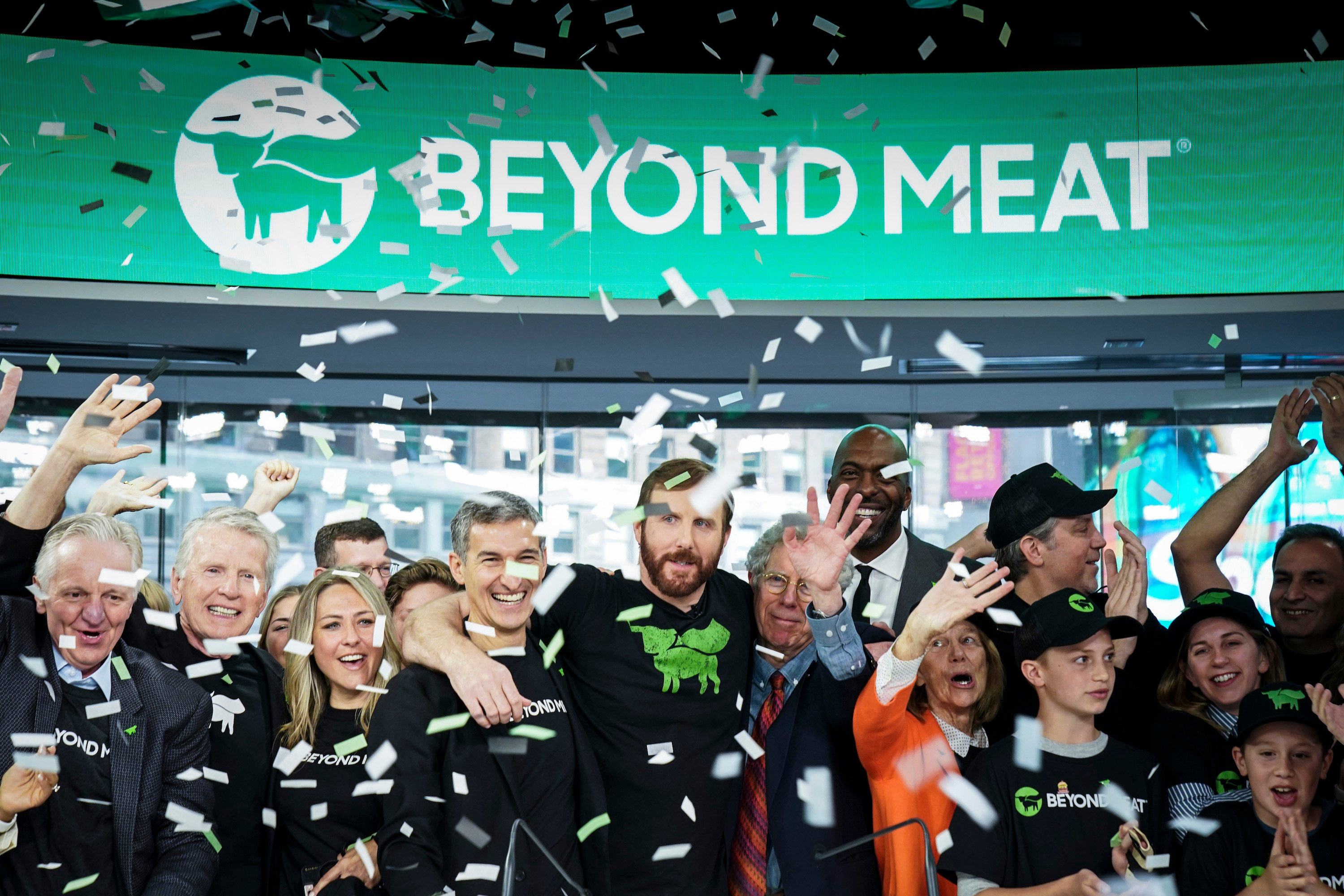- Beyond Meat’s borrow fee has climbed to more than 100%, meaning it’s more expensive to bet against the stock than to own it.
- Still, short sellers are not leaving the trade despite losing $568 million this year, according to Ihor Dusaniwsky of the data-analytics firm S3 Partners.
- It is rare for stocks to have borrow fees of more than 100% for more than a few days.
- Watch Beyond Meat trade live.
Not everyone is happy with Beyond Meat’s soaring stock price.
Short-sellers, or traders who have bet against the best-performing initial public offering of the year, have lost hundreds of millions of dollars as the stock has climbed to more than 600% of its initial IPO price of $25 a share.
On Monday, the fee to borrow shares of Beyond Meat surged to 134% for existing shorts, meaning that it is more expensive to short the stock than to go long, according to Ihor Dusaniwsky, the managing director of predictive analytics at the data-analytics firm S3 Partners. In addition, the scarcity of stock is now causing new shorts to pay premiums of 300% to 700% in borrow fees to enter the trade.
“It’s extraordinarily rare,” to have a short borrow fee over 100% for such a long time, Dusaniwsky said. The borrow fee edged over 100% on June 6, and has been going up ever since.
Monday's 21% surge meant short-sellers were saddled with $170 million in mark-to-market losses on Monday alone, bringing their total loss since the May 2 IPO to $568 million, according to Dusaniwsky's calculations. Shorts are paying $3 million a day just in financing costs, meaning they'll soon have to decide if the cost of financing the trade will be worth it in the long run.
Most short sellers appear to be staying the course for now. Even amidst positive news such as the potential of a partnership with McDonald's and the better than expected full-year outlook, they are holding onto their positions, banking that the runaway gains can't last.
"They're saying this has been such a hot and heavy move by the stock that it has to come back," said Dusaniwsky. "This has gone from being a normal short to something that's in its own class. It's very Tesla-esque."
Tesla short-sellers held positions for years before seeing a big payoff. But when Tesla shares tanked in May, they recorded $1 billion in profits, one of the highest-paying months for bears since 2016, according to Bloomberg.
Shorts might also be holding their position because the stock is still in its lock-up period, meaning that early investors are unable to sell.
After the lock-up period is over, it's assumed that some early investors will sell shares to realize a profit, which could pressure the stock. But how much that will impact the share price is debatable, Dusaniwsky said.
"This is really a one-off name in the market right now for stock to go this high and for shorts not to move," Dusaniwsky said. If there is going to be a short squeeze, he thinks it will happen soon.
While other stocks' borrow fees have exceeded 100%, few have had that high of a fee for as long as Beyond Meat - usually borrow fees spike and then quickly decline. But Beyond Meat's fee has held over 100% since June 6 and is still climbing.
"This looks like it's got some legs, but we'll see, in a week it could be a whole different story," Dusaniwsky said.
Beyond Meat is up 572% since its shares priced on May 1.


